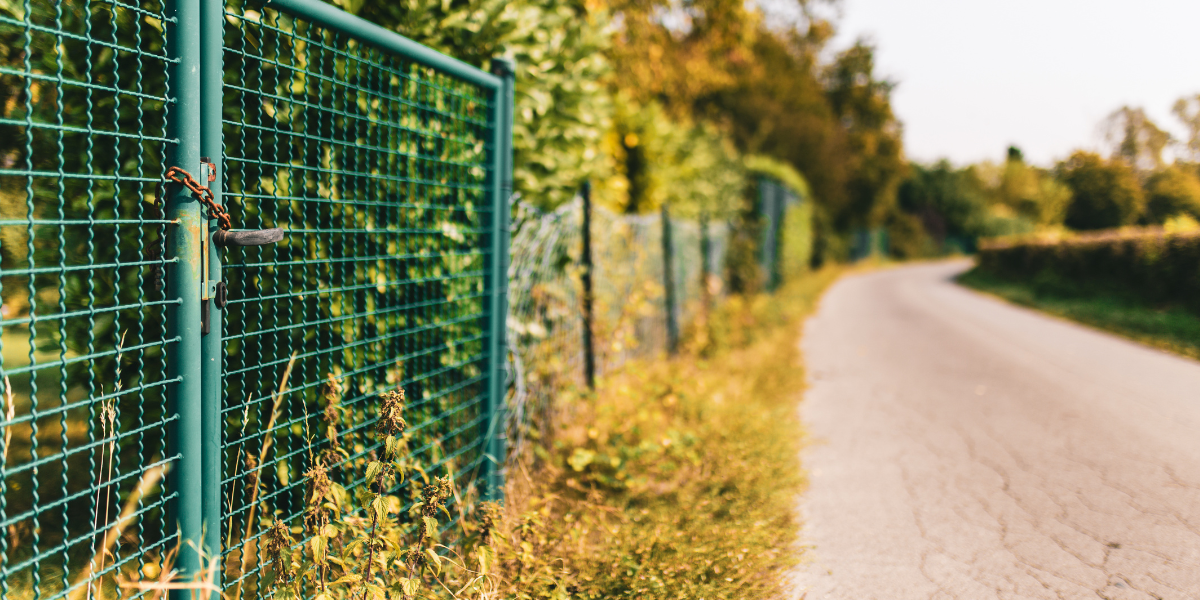


Wire fencing is essential to any property, providing security and safety for animals and people. However, it is necessary to maintain your wire fencing regularly to ensure its longevity and effectiveness.
Here we will discuss tips for maintaining your wire fencing, keeping it strong and durable, and extending its lifespan. By implementing these tips, you can protect your property and ensure the safety of your animals and loved ones.
Proper tension is essential for maintaining the strength and stability of your wire fencing. Here are some tips on how to keep the tension of your wire fencing and when it should be adjusted:
Read Also: 5 Beautiful Summer Blooms for Your Backyard Fences
Wire fencing is often subjected to harsh weather conditions, which can cause rust and corrosion over time. By taking these steps, you can help ensure the longevity and durability of your wire fencing.
Here are some tips on how to protect your wire fencing from rust and corrosion:
Choose a fencing material resistant to rust and corrosion, such as galvanized steel or vinyl-coated wire.
Moisture significantly contributes to rust and corrosion. Keep your fence as dry as possible by ensuring proper drainage and avoiding sprinklers or other water sources near the fence.
Protective coating to your fence can help prevent rust and corrosion. Some standard coatings include paint, powder coating, and zinc or aluminum-based coatings.
Dirt and debris can accumulate on your fence and trap moisture, leading to rust and corrosion. Regularly cleaning your fence with a mild detergent and water can help prevent this build-up.
If you notice any rust on your fence, it's important to treat it promptly. You can use a rust converter to convert the rust into a protective coating or a wire brush to remove the rust and apply a rust inhibitor.
Applying a light coat of oil or lubricant to your fence can help protect it from rust and corrosion. This is particularly useful for areas exposed to salt or other corrosive substances.
Wire fencing can sag or become misaligned over time due to several factors, such as wind, weather, and animal pressure. Here are some ways to prevent your wire fencing from sagging or becoming misaligned.
The framework of the wire fence should be sturdy and installed correctly. Use high-quality wooden or metal posts that are firmly anchored in the ground. The posts should be appropriately spaced to provide adequate support for the fencing.
A tension wire is a strong wire stretched tightly along the bottom and top of the fence. This wire helps to keep the fence in place and prevent sagging.
Inspect the fence regularly for any signs of damage or wear and tear. Repair any broken or damaged wires, posts, or clips immediately.
Make sure that the fence is installed correctly, and that the wire is stretched tightly between the posts. If the wire is not stretched tightly, it can sag over time.
Choose a high-quality wire that is durable and resistant to rust and corrosion. This will help to prolong the life of the fence.
If animals such as horses, cattle, or deer are putting pressure on the fence, consider adding additional support, such as a strand of electric wire or a rail fence.
Read Also: 3 Factors to Decide the Right Fence Height for Your Property
La Habra Fence is the best fencing contractor in Orange County due to its exceptional quality of work, competitive pricing, and outstanding customer service. With over 65 years of experience, we are a trusted name in the fencing industry, providing a variety of fencing solutions for residential, commercial, and industrial properties.
Contact us to get the best wire fencing solutions.